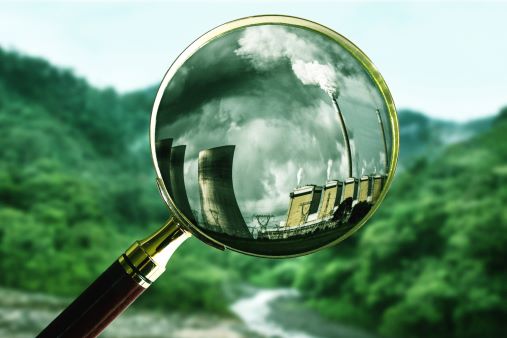When clients are faced with criminal allegations, we quickly identify the conduct at issue and engage with regulators to promote early resolution.
Although environmental crimes prosecutions should be used only for egregious violations, such as those that affect human health or cause substantial environmental harm, the government does not always proceed this way. We are alert to overzealous prosecutions and are adept at guiding such enforcement actions to the appropriate forum or having them discharged. When the government refuses to back off, our team of skilled attorneys defend cases vigorously using our sophisticated legal, technical and investigations resources to reach appropriate outcomes.
Areas where environmental crimes arise:
Clean Water
Most releases or discharges of any material other than clean, unheated water into water bodies of any kind require a permit. Knowingly discharging unpermitted substances into most waters is a felony, such as:
- Discharging from buildings or vehicles into streams, rivers, ponds, lakes, oceans and sewer systems without a permit or in violation of permit conditions
- Placing fill in wetlands without a permit or in violation of permit conditions
- Causing or allowing the release of oil or hazardous substances into water bodies
Clean Air
Discharging pollutants to the air is highly regulated and knowing violations of applicable statutes and regulations can be felonies, including:
- Discharges of pollutants from stationary sources
- Certain discharges from mobile sources subject to inspection requirements
- Removing and disposing of asbestos without strict compliance with applicable regulatory requirements
Hazardous Wastes, Substances and Chemicals
Handling hazardous materials and chemicals is highly regulated and felony charges can be brought for:
- Unpermitted or otherwise unlawful disposal, storage, transportation or other management of hazardous waste
- Failing to immediately report releases of certain quantities (often quite small) of hazardous substances and oil
- Failing to properly register manufactured chemical products
Pesticides
Pesticides, including many substances not normally considered to fit the common definition of pesticide, are highly regulated. In addition to mishandling, misapplication and adulteration, pesticide crimes can include:
- Applying certain disinfectants while claiming they “kill pests” such as viruses (including COVID-19) or otherwise prevent contamination by disease-causing organisms
- Manufacturing and selling (including do-it-yourself manufacturing) of unregistered pesticides or pesticide devices
- Selling or applying pesticides improperly or without required credentials
False Claims, False Statements and Fraud
Prosecutors often look for evidence of deception to enhance environmental crimes cases and increase potential sentences. This includes:
- False statements made to inspectors, investigators and environmental agencies, which can be punishable by up to five years in prison
- Fraudulent conduct detected in providing environmental services, such as chemical testing and waste disposal, which can lead to criminal prosecutions or False Claims Act lawsuits (whistleblower claims)
Investigations
For most criminal prosecutions, Barnes & Thornburg expeditiously investigates the underlying facts to determine if they support the alleged violations and to get out ahead of the government’s team. We have the skills, experience and resources to conduct appropriate investigations to arm ourselves as early as possible with the information needed to respond to environmental crime allegations.
















